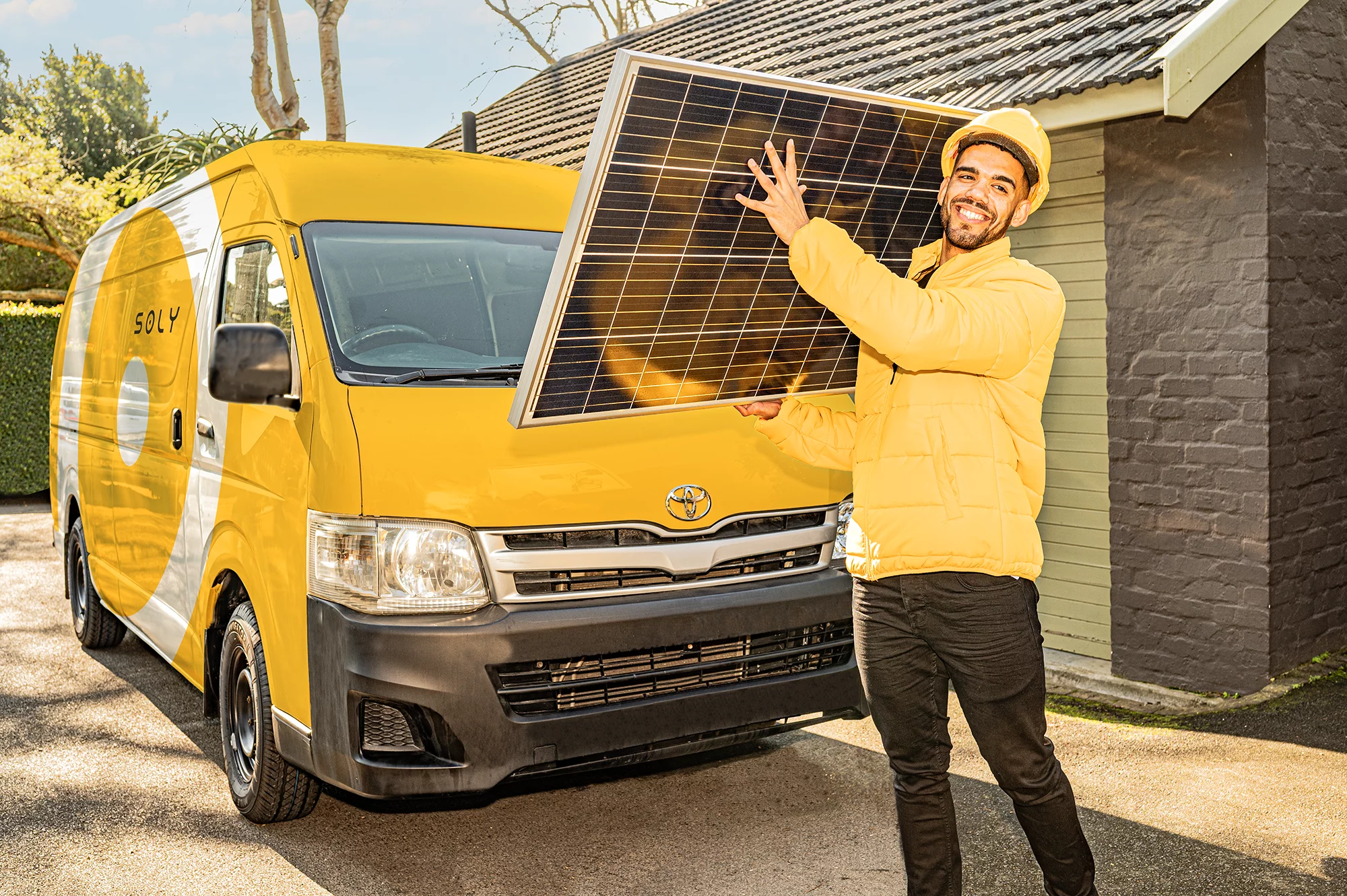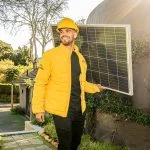At a glance
How do solar panels function?
How does a solar energy system work?
Solar panels function on the basis of sunlight and convert light into electricity for households and businesses. Running your washing machine or a whole farm on the power of the sun. Quite special if you think about it. Behind the solar panels on your roof there is a fine piece of technology. Although the solar panels catch the spotlight of the installation, they cannot do the job alone. What exactly are you getting when you buy solar panels? And how does a solar energy system work exactly?

This is how solar panels function
A solar panel consists of a collection of dozens of solar cells. In most cases, these solar cells are made of silicon: an element that can generate electricity when exposed to sunlight. When sunlight strikes the solar cell, a voltage difference is created between the layers of silicon. This voltage difference ensures that electricity is generated. Silicon is extracted from sand, which makes solar panels easily recyclable.
The energy that solar panels generate is called direct current. This form of electricity cannot be used to power your appliances. In order to make the power usable, it has to be converted into alternating current in a so-called ‘inverter’. More about this later.
Connecting solar panels in parallel
How solar modules are connected affects the yield of the solar plant. There are two ways in which solar panels can be connected: in series or parallel. Solar panels perform best when they capture as much sunlight as possible. Sometimes, one or more panels may be in the shade. Is this the case, then we’ll always opt for a parallel system. This way, your complete system will still be able to provide the solar energy you are expecting, without experiencing the negative consequences of a solar panel partly in the shade.
Solar panels in series
If a field of solar panels is connected in series, the entire circuit will perform to the output of the worst-performing panel. Do you have a roof without shade? Then you can connect the solar panels in series. If a solar panel is (partly) in the shade, this will adversely affect the entire series. In general, opting for solar panels in series – price-wise – is the better option. However, when making the choice, we will carefully look at the position of the sun during a full day, in order to make you profit from solar panels at maximum.
How does a solar panel inverter function
A cable runs from the solar panels to the inverter. This device converts direct current into usable alternating current. This alternating current is then transferred to the meter cupboard, after which your appliances in the house can use the power.
The inverter is a box the size of two large shoeboxes. When the panels generate energy during the day, the inverter does its work. At night, both the panels and inverter are off. The device makes a soft sound throughout the day but is silent at night. The inverter builds up heat, and it is vital to install the device in a place with sufficient space for air circulation.
Different types of inverters are required for a series or parallel-connected system. At Soly, we use a Growatt inverter for a series system. For a parallel system, we use a SolarEdge or a Sungrow inverter. Read more about the specifications of an inverter.
Supplying power from your solar panels back to the grid
Your solar power system runs during the day. Therefore, that is the ideal time to make use of direct energy. However, the power generated that is not used will feedback into the grid or can be stored into a battery storage. When the sun is unavailable energy can be used from the grid when required. You now know how solar panels work. Don’t have solar panels yet? Now is the time to make the switch. At Soly you can choose to lease solar panels or purchase them. Request a free proposal to learn how you can benefit from going solar.
Knowledge base


